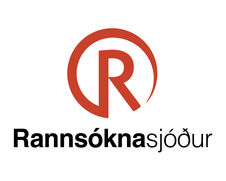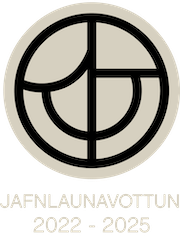Lýðræðisleg stjórnarskrárgerð: Tekist á um borgaraþátttöku, vald stofnana og sameiginleg gæði - verkefni lokið
Fréttatilkynning verkefnisstjóra
Verkefnið lýðræðisleg stjórnarskrárgerð hefur frá 2019 verið virkur rannsóknavettvangur á sviði stjórnarskrárgerðar. Fimm doktorsnemar og einn nýdoktor sem unnið hafa með og á vegum verkefnisins hafa rannsakað þátttökuferla og hönnun stjórnarskrár sem auka skilning á flóknum tengslum fulltrúalýðræðis og borgaralegrar lýðræðislegrar þátttöku.
Tilraunir til að breyta íslensku stjórnarskránni og leiðir til að skapa aðstæður opinna rökræðna sem hér á landi hafa verið viðfangsefni rannsókna innan verkefnisins og hafa orðið uppspretta fræðilegra umræðna sem hafa gildi fyrir lýðræðiskenningar almennt. Rannsóknir aðalrannskanda verkefnisins og annarra í verkefninu sýna hvernig tregða og mótstaða stofnana grefur undan framlagi hins almenna borgar til lýðræðislegrar stefnumótunar og ákvarðana. Hugmyndir og lausnir ferðast eftir krókaleiðum frá almennum borgurum og frjálsum félagasamtökum (þar á meðal skipulögðum rökræðuhópum) til þeirra sem með ákvörðunarvald fara og hrakfarir verða ekki einungis skýrðar með pólitískri andstöðu eða andstöðu stofnana og sérhagsmunahópa. Þekkingarlegur munur er einnig lykilatriði og þýðingavandi á milli ólíkra hópa í ólíkri stöðu gagnvart stjórnkerfi og valdi.
Verkefnið hefur verið vettvangur tilrauna og nýsköpunar sem opna möguleika á að skapa nýja
þekkingu á sviði stefnumótunar og lýðræðislegra stjórnarhátta. Áhrif á stjórnmál og stefnumótun eru ekki að fullu komin fram og velta að nokkru leyti á örlögum núverandi markmiða um endurskoðun íslensku stjórnarskrárinnar. Reynsla sem orðið hefur til á Íslandi á sviði almenningssamráðs og þátttöku almennings í ákvörðunum og stefnumótun hefur aukist töluvert, meðal annars vegna tilrauna sem gerðar hafa verið á vegum verkefnisins, s.s. rökræðukönnunar 2019. Aukið traust og áhugi á síkum aðferðum birtist meðal annars í samvinnu forsætisráðuneytisins og PHOENIX verkefnisins sem felur í sér framhald á sumum þeirra aðferða sem unnið hefur verið með á vettvangi Lýðræðislegrar stjórnarskrárgerðar. Áhrif innan fræðanna og í samanburðarrannsóknum er enn of snemmt að meta til fulls.
English:
DCD – Democratic constitutional design – has since 2019 been the major research platform in Iceland on constitutional design. The project’s five PhD students and one post-doctoral fellow have been engaged in the study of participatory processes and constitutional design that help understand the complex relationships between representative democracy and civic democratic engagement. The processes in Iceland that have been thoroughly studied during the almost four years the project lasted do serve as interesting case studies for democratic theory in general. The research conducted by the PI and other researchers in the project demonstrate the institutional resilience that tends to undermine contribution from citizens to democratic decision making. The way ideas and solutions are transmitted from citizens or civic groups (including mini-publics) is complex and failures cannot be explained simply by the presence of political, institutional or interest based resistance. Epistemic differences between different groups also play in important role as well as translational conflicts between groups differently posited in relation to governance and power.
Information on how the results will be applied:
The project has been the platform for experiments and innovation that carry the opportunity of
creating new knowledge which may be applied to policy making and governance processes. Policy
implications remain to be seen and are to some extent bound up with the fate of ongoing policy
objectives, regarding the Icelandic constitution. The experience in Iceland of public engagement and consultation has increased considerably and increased trust in such methods can, e.g. be seen in the recent cooperation of the Prime minister’s office with PHOENIX on an online consultation process about land use in the highlands. Theoretical and comparative implications of the project are still work in progress.
A list of the project’s outputs:
Geta lög og stjórnarskrá verið hverju barni skiljanleg? A workshop at the University of Iceland Annual Humanities conference (Hugvísindaþing), 9 March 2019 (A workshop at the University of Iceland Annual Humanities conference (Hugvísindaþing), 23 September 2020
(https://vefsafn.is/is/20191019012445/http://hugvisindathing.hi.is/malstofur/stjornarskra-texti-ogtulkun/).
DCD Summerschool, August 2019. A one week-long workshop seminar with an international group of 26 students, in collaboration with HSE in Moscow (Sergei Medvedev). Held at Bifröst University, July 2019.
Workshop with PhD students and public talk with Robert Talisse, 24-26 September 2019
(https://stjornarskra.hi.is/ad-samraema-stofnanir-thatttoku-og-almannahag/).
A deliberative poll on constitutional revision (in collaboration with the Social Science Institute at the University of Iceland – Report and all results of the DP: https://fel.hi.is/is/utgefid-efnirokraedukonnun/nidurstodur; A collection of media reports and interviews about the DP:
https://fel.hi.is/is/utgefid-efni/rokraedukonnun).
Open platform constitutional deliberation with the Citizens’ Foundation (https://thin-eiginstjornarskra.betraisland.is/quiz).
Crowd law workshop Barcelona, 2019
(https://www.upf.edu/documents/6764143/229140471/CrowdLawBCNProgram10_11_19.pdf/19f1f
4cf-cdd2-8d3d-8711-d46941fcfd2c).
Lýðræði, hönnun, valdefling. Workshop at the annual Social science conference (Þjóðarspegill) 1
November 2019 (https://thjodarspegillinn.hi.is/event/lydraedisleg-almenningsthatttaka-honnunvaldefling-ahrif/).
The constitutional Game created in cooperation with the Citizens’ Foundation (https://thin-eiginstjornarskra.betraisland.is/quiz).
A website on the project containing discussion on Icelandic constitutional revision in Icelandic and
English (www.constitution.hi.is, www.stjornarskra.hi.is)
An international event on the results of the Deliberative Poll with James Fishkin and Lawrence Lessig, University of Iceland, 25 and 26 January 2020 (https://stjornarskra.hi.is/lawrence-lessig-hvad-getaonnur-lond-laert-a-lydraediskrisunni-i-bandarikjunum/).
Workshop, public talk and consultation meetings with Maija Setälä, 10-14 March, 2020
(https://stjornarskra.hi.is/geta-slembivaldir-kviddomar-aukid-thekkingu-og-traust-i-addragandaatkvaedagreidslu/).
Political Agency after COVID-19: Representation, Power, Constitutions. 15 May 2020. An online
conference mediated by the University of Iceland, EDDA Research Center
(https://stjornarskra.hi.is/en/political-agency-after-covid-19/).
Lýðræðið í bergmálshellinum. A workshop at the University of Iceland Annual Humanities conference (Hugvísindaþing), 23 September 2020 (https://stjornarskra.hi.is/lydraedid-i-bergmalshellinum/).
A Podcast series Lýðræðisleg stjórnarskrárgerð, in two parts, hosted and produced by Sævar
Finnbogason. (1) 6 episodes special series that focuses on the deliberative meeting in Reykjavík 2019, the experience of participants and wider context. (2) 16 podcast episodes (8 in Icelandic and 8 in English) on democratic innovation and constitutional revisions, and the Icelandic deliberative poll (https://stjornarskra.hi.is/hladvarp/).
Open Democracy and Democratic Institutions. An online workshop in cooperation with the Office of the Prime minister of Iceland and OECD’s Open government unit, 4 December 2020
(https://stjornarskra.hi.is/malthing-opid-lydraedi-og-nyjar-lydraedislegar-stofnanir/).
A summary and a narrative overview of the Deliberative poll with an assessment on how Citizen
participation in organized settings may show distinctive differences from both ordinary democratic
institutions and activist led discussion (In Icelandic https://stjornarskra.hi.is/rokraedukonnun/; In
English https://stjornarskra.hi.is/en/).
Collaboration with the University of Iceland Web of science on answers to user questions on
constitutions and constitutional revision. Spring 2021 (https://www.visindavefur.is/svar.php?id=80423#).
Deliberateria – A Space for Dialogue. An online conference organized by the Polish Institute for
Human Rights and Business (PIHRB) and the University of Iceland, 28 September 2021
(https://pihrb.org/wp-content/uploads/2021/09/Deliberateria-Program-EN.pdf).
Rökræður, þátttaka, meðtalning: Lykilatriði lýðræðis. A workshop at the University of Iceland Annual Humanities conference (Hugvísindaþing), 9 March 2022 (https://stjornarskra.hi.is/malstofa-umrokraedulydraedi-og-thatttoku-a-hugvisindathingi/).
Stjórnarskráin: Hvað næst? (The Icelandic constitution: What next). A one-day conference on the
occasion of the 10 year anniversary of the National referendum in Iceland on the constitution. 20
October 2022 https://edda.hi.is/icelandic-constitutional-revision-what-next/
Constitutionalism and Democracy: A Tension Revisited a talk and workshop with Joel Colón-Ríos, 25 October 2022 (https://stjornarskra.hi.is/stjornarskrar-og-lydraedi/).
KRIA – an archival project on Iceland’s Constitutional process in which written and oral sources are
collected, digitalized and made available for further research and analysis. KRIA was launched and
directed by Eileen Jerrett and has been tightly connected to DCD. It was presented to the Director of the National library in June and will be made accessible as a part of the Library’s digital collections (https://archive-it.org/home/KRIA).
Project final conference. The Future of Deliberation. A two-day workshop (1-2 June) followed by a
one day public conference (3 June). Workshop contributions in the form of longer talks and
discussion: Paul Blokker, Elena Garcia Guitan, Maja Setälä, Salvor Nordal, Peter Stone, Lawrence
Lessig, Yelena Welp and Jón Ólafsson. Special guests at the one-day conference: Robert Talisse,
Cricket Keating, Just Serrano Zamora (https://edda.hi.is)
Heiti verkefnis: Lýðræðisleg stjórnarskrárgerð: Tekist á um borgaraþátttöku, vald
stofnana og sameiginleg gæði/Democratic
Constitutional Design: Negotiating Civic Engagement, Institutional Control and
the Common Good
Verkefnisstjóri: Jón Ólafsson, Háskóla Íslands
Tegund styrks: Öndvegisstyrkur
Styrktímabil: 2019-2021
Fjárhæð styrks kr. 146.668.000
Tilvísunarnúmer Rannís: 195656


